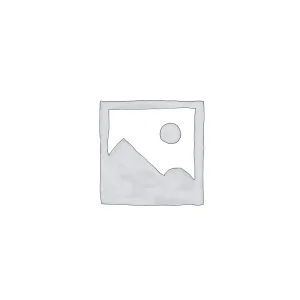Exploring Directories and Their Applications
Directories play a critical role in organizing information and connecting users with resources, businesses, and services. They serve as repositories that offer structured data to help individuals find what they are looking for efficiently. Many businesses and organizations utilize directories to streamline their offerings and enhance user experiences. In this discussion, we will delve into the essence of directories, their types, applications, and how they contribute to the overall landscape of digital navigation.
Understanding Directories
Directories can be thought of as databases or lists that categorize similar entities under various headings. They can range from traditional print directories, such as phone books, to digital platforms that house everything from local businesses to global corporations. The digital transformation has made it easier to create, manage, and access directories online.
For instance, online business directories allow users to find local companies quickly, read reviews, and access critical contact information. These directories function as a bridge between consumers and providers, fostering relationships and facilitating commerce.
Types of Directories
-
Business Directories: These are among the most prevalent types of directories, showcasing various businesses within a geographic or industry-specific category. They offer essential business information such as names, addresses, contact numbers, and sometimes customer reviews. Examples include Yelp, Yellow Pages, and Google My Business.
-
Service Directories: These directories focus on specific services, such as home repairs, beauty services, or healthcare. They help users find qualified professionals in their area, complete with ratings and reviews to aid in their decision-making process.
-
Product Directories: eCommerce platforms often use product directories to categorize their range of products. These help consumers easily navigate through various items, filter options, and find exactly what they’re looking for.
-
Educational Directories: Institutions and educational platforms maintain directories to list courses, programs, and educational resources. These directories help potential students understand their options and make informed decisions.
-
Local Directories: Catering to local audiences, these directories focus on businesses and services within a specific community. They often feature additional information like community events, local news, and other resources that cater to local residents.
-
Specialty Directories: This type of directory covers niche markets or specific interests, such as directories dedicated to vegan restaurants, pet services, or sustainable products, giving particular audiences the resources they desire.
Benefits of Using Directories
For users, directories simplify the search process, allowing them to find information quickly and efficiently. They enhance visibility for businesses, leading to increased customer engagement and higher sales. Here are some specific benefits:
-
Enhanced Visibility: Businesses listed in directories experience increased visibility, making it easier for potential customers to find them online and in person.
-
User Reviews: Many directories incorporate user reviews, providing feedback that can help influence purchasing decisions. Customers often rely on these reviews to gauge the quality and reliability of a service or product.
-
SEO Benefits: Being listed in directories can improve a business’s search engine optimization (SEO). Search engines consider directories as credible sources, and links from these directories can boost a site’s authority.
-
Community Engagement: Local directories encourage community connection by promoting local businesses and events, fostering a sense of belonging and support among residents.
Best Practices for Creating Effective Directories
When curating a directory, several best practices can enhance the experience for both users and businesses. Here are some suggestions for building an effective directory:
-
User-friendly Navigation: An intuitive design with clear categories helps users find what they need without confusion. Search and filter functionalities are essential in directories to streamline the search process.
-
Regular Updates: Keeping directory listings current is vital. Outdated information can frustrate users and diminish the directory’s credibility, so establishing a routine for regular updates is significant.
-
Detailed Listings: Providing comprehensive information about businesses, services, and products will add value to the listings. This includes descriptions, images, hours of operation, and contact information.
-
Encouraging Reviews: Implementing a review system can increase user engagement and provide invaluable feedback. Actively encouraging satisfied customers to leave reviews will also enhance the directory’s usefulness.
-
Mobile Responsiveness: With more users turning to mobile devices for information, ensuring that directories are mobile-friendly is essential for reaching a broader audience.
-
Social Media Integration: Allowing users to share listings on social media can enhance visibility and drive traffic to the directory. This can create a ripple effect, generating interest and engagement from a broader audience.
The Role of Directories in Business Growth
For businesses, being part of a directory can be pivotal in driving growth. By harnessing the power of directories, businesses can achieve several objectives:
-
Targeted Marketing: Directories allow businesses to reach specific demographics and target audiences actively searching for their services or products.
-
Customer Acquisition: Listings in directories expose businesses to new customers who may not have discovered them through traditional marketing avenues.
-
Reputation Management: An active presence in directories allows businesses to manage their online reputation by encouraging satisfied customers to leave positive reviews while addressing any negative feedback professionally.
-
Analytics: Many online directories offer analytic tools to track views, engagements, and conversions. This data can help businesses tailor their marketing strategies based on what works.
Examples of Popular Directories
In the modern internet landscape, several directories are widely used and recognized. Here’s a look at some of the most popular directories that showcase different entities and services:
-
Yelp: A leading business directory that focuses on user reviews. Yelp allows users to search for services and read others’ experiences, making it an invaluable tool for local consumers.
-
Yellow Pages: Traditionally known for print listings, Yellow Pages has transitioned successfully into a digital format, helping users find businesses based on categories and locations.
-
Google My Business: An essential tool for businesses to manage their online presence across Google, including Search and Maps. It is vital for local SEO, making it easier for customers to find business information.
-
TripAdvisor: This travel and restaurant directory is highly focused on user reviews, offering insights for travelers looking for accommodations, restaurants, and experiences.
-
HomeAdvisor: A directory focused on home services that connects homeowners with service professionals for home improvement projects and repairs, providing reviews and cost estimates.
-
Healthgrades: A healthcare directory that helps patients find and connect with doctors, hospitals, and health care providers based on specialized care and user reviews.
Future of Directories
As technology continues to evolve, the future of directories looks promising, with several trends emerging that will shape their development:
-
Increased Personalization: Future directories are likely to incorporate AI to personalize user experiences further, tailoring recommendations based on user preferences, location, and past interactions.
-
Integration with Apps: Directories may increasingly integrate with smartphone applications, offering functionalities that make information even more accessible on the go.
-
Focus on Data Privacy: With growing concerns about data privacy, directories will need to implement robust privacy measures to protect users while still providing valuable insights and services.
-
Voice Search Optimization: As voice search technology becomes more widespread, directories will need to optimize their content for voice queries, positioning themselves to tap into this emerging trend.
-
Multi-platform Accessibility: Ensuring that directories are accessible across various platforms and devices will increase user engagement and help capture a wider audience.
Directories serve as essential tools that bridge the gap between consumers and businesses. By improving visibility, enhancing customer engagement, and facilitating connections, directories significantly contribute to modern commerce and information sharing. Whether used for discovering local services, managing user reviews, or showcasing products, the value of directories in today’s digital age cannot be overstated. The continuing evolution and adaptation of directories will undoubtedly influence the way we search for, interact with, and consume services and goods in the future.
Download Directories Plugins for free
That’s right, downloading Directories Plugins for free is viable and perfectly law-abiding.
Actually, even downloading a cracked Directories is law-abiding, as the license it is distributed under is the General Public License, and this license allows the user its free modification.
Thus, you can be calm: If you were looking to buy Directories cheaply or, directly, to download Directories Plugins nulled and, this way, have it completely free,, it’s possible within the law.
Directories GPL: A great way for entrepreneurs beginning their journey
What you call it is irrelevant: Directories Plugins offers, download Directories Plugins GPL, download Directories without license or download Directories Plugins cracked.
It is 100% legal and something more than necessary for any entrepreneur beginning their journey.





Reviews
There are no reviews yet.